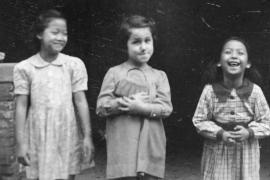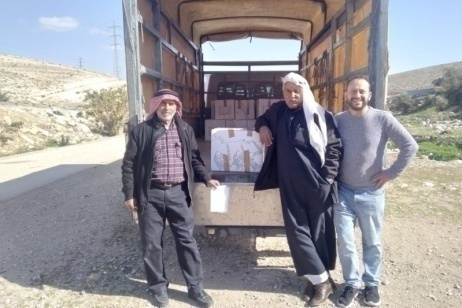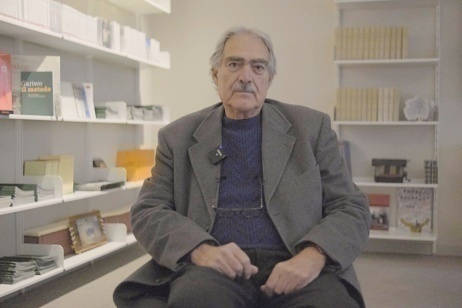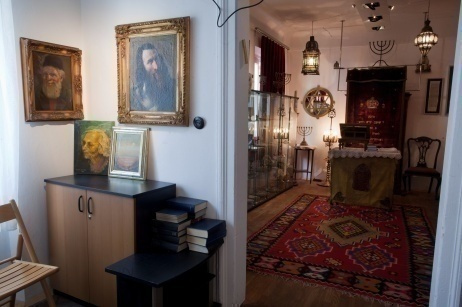
Marion Gerber and her Chinese friends
The incredible tale of the Jews who fled to Shanghai. The meeting with Ho Feng Shan, Chinese consul to Vienna. A journey across continents. The arrival in a distant land, with unknown language and spaces. The extreme poverty and the coexistence between two very different communities. All this is part of Above the Drowning Sea, a 90-minute documentary by Nicola Zavaglia and René Balcer, with the voices of Julianna Margulies and Tony Goldwyn (familiar faces of the tv series The Good Wife and Scandal).
The movie puts together the pieces of testimony of the Jews who arrived in Shanghai in the Thirties and Forties in order to flee Nazi persecution and the Chinese dwellers of the neighbourhood of Hongkou.
Tale after tale, what emerges is the turmoil the two communities caused one another. On one side, the Jews who arrived in a distant country, in conditions of extreme poverty; on the other side, the Chinese who for the first time found themselves very close to some Europeans.
70 years on, the movie revives the memories, emotions, old friendships and bonds that were never dissolved. All this, and the connections between these events and our present context, we talked about with Nicola Zavaglia, the film's director.
Would you tell us about the making of your documentary?
The idea of the script was first conceived by Cheng Davis, of Columbia University, and by Carolyn Hsu-Balcer, director, art collector and producer. The goal was that of making a movie that would celebrate Ho Feng Shan and the “miracle” of Shanghai. We should in fact remember that, when the Jews managed to leave Vienna, at their arrival in China they had to live side by side with the Chinese community. It was the first time that some Europeans melted with the Chinese – whom they used to consider as servant class – and they did not settle in the areas dedicated to them. When the Jews of Vienna arrived in Shanghai, they had to live in Hongkou, a very poor neighbourhood. And here was where the “miracle” happened: the inhabitants of Hongkou were not rich, but when these white, destitute Europeans arrived there, they did not reject them.
Thanks to René Balcer's imput, fundamental for the realization of the project, we sought to tell about all this story, the story of a happy encounter within a tragic situation. Let us not forget in the Thirties there were the war, the clash between the Chinese nationalists and communists, the Japanese invasion of China...
In such a generalized chaos, the movie tells about the life side by side of these two communities, their differences but also the friendships that were made.
Were you struck by some tales in particular?
The testimonies we collected are all very different from each other. I really liked the story of a female doctor who told about her friendship with the Jewish lodgers of a home in front of hers. Even after their departure, she never forgot about them, and every now and then she went to visit the Jewish Refugees Museum in Shanghai in the hope she could hear from them. The roots of this bond are very deep, and in the movie you see that this woman, 70 years on, is still very moved when she talks about them. There is also another detail: the people we interviewed were all kids when they were in Shanghai. Therefore we have the point of view of the young people of those times, their emotions, and this is very moving.
How did both communities involved in this encounter feel about it?
For those who arrived from Vienna in the Shanghai of the Thirties, the reality they were faced with was upsetting. It was not only a big leap into the unknown – arriving in a place of which you do not speak the language, you do not know the spaces, all rules you have do not exist anylonger – but there was also the drama of those who in Europe was wealthy and then in China found themselves wretched. Those who arrived in Shanghai saw the most extreme poverty: the tales also mention Chinese children died among the rubbish, who were collected together with the garbage. This level of suffering was harrowing even for those who fled the Nazi persecutions.
What struck the Chinese the most, however, was to see some Europeans live among them, because they were not used to dealing with white people, if not to serve them.
Hence, what does this story of peaceful coexistence and mutual recognition teach us?
The arrival of the Jews in Shanghai was a great lesson of life and humility, especially for the refuugees who have seen their life standards sink. Many found a way to survive: they undertook humble jobs and used the knowledge they had brought from Europe. There were thus Vienna photographers who opened studios in Shanghai, or other Jews who opened cafés, restaurants or even fur shops. Of course, there were also people living in poverty: a character, Otto Schnepp, in the movie told about his difficulty at listening to his mother complaining about hunger.
These pieces of testimony can thus teach us not only that survival is possible, but that the encounter between completely different peoples is too. The Chinese did not rebel against the “invasion” of the Jews – often even poorer than them – but helped the persecuted.
One of the witnesses, Vera, was welcomed by a Chinese family and told us with a great deal of emotion about the good she received from these people. This is why she got back many times to China, seeking to hear from them, but she never retraced her helpers. In the movie though we show the meeting between Vera and the one she calls as little sister, a Chinese girl with whom she played in Hongkou. 70 years on, they did not forget about each other. It was a very moving moment.
As you said, the Chinese have welcomed those who were so different from them. Today we still talk about hospitality, in reference to new migrations. Do you see any connections between these events and the current reality?
Of course, a parallelism with what happened in those time and what is happening now exists, and we have tried to show it in our movie, too.
In the Thirties, the doors were always shut for the Jews, no country wanted them and for them remaining in Europe automatically meant death. Now the situation is diffetent because not for all the migrants there is this immediate risk of being murdered, but the background context is equivalent: it is people who only try to stay alive.
The arrival of different people always gives rise to some issues in daily life. It happened to me, too, when I arrived in Canada. The first reaction is mistrust, antagonism and rejection of the other.. in Shanghai though that did not happen: this is why we can talk about a miracle.






